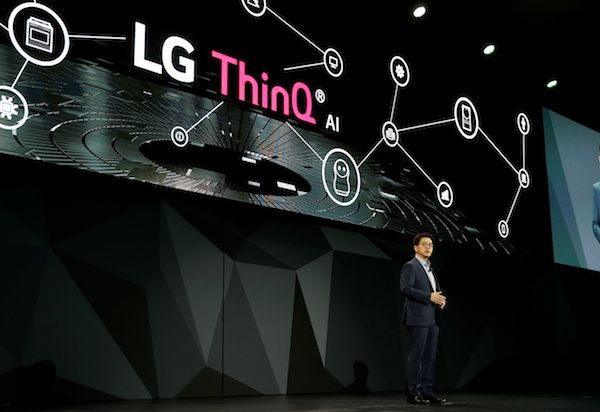LG Whisen ThinQ Is AI-Enabled Air Conditioner With Smart Sensors

Earlier this week, industry sources disclosed that Samsung and LG are planning to launch artificial intelligence-based air conditioners later this month. Surprisingly, LG one-upped its crosstown rival by launching its first AI-powered cooling system this Thursday.
At a media event in Seoul, LG introduced its premium air conditioning unit that boasts of artificial intelligence capabilities. “The Whisen ThinQ air conditioner has evolved to an air conditioner that can see, hear, think and speak,” Song Dae-hyun, president of home appliance & air solutions at LG, said.
The 2018 LG Whisen ThinQ is the upgraded model of last year’s Whisen. The 2017 model did come with sensors that gave it the ability to learn about the room where it is placed, so it could provide optimum temperature to users.
With ThinQ, the 2018 model features the ability to learn about the room and analyze real time changes that are taking place inside and outside of it. It can also learn about users’ preferred settings patterns and eventually adjust the settings by itself depending on who is inside the room, Korea Herald has learned.
The 2018 LG Whisen ThinQ’s AI is designed to observe and learn quickly. It would take just two days for the device to thoroughly examine its surroundings and about four days to gather sufficient data in order for it to make automatic adjustments through its Smart Care function, Ryu Hye-jung, the head of LG’s smart solution business, said.
Because the new Whisen air conditioner is part of the ThinQ-labeled products by LG, it can be connected to smart speakers. Through this connection, users can interact with LG’s new cooling system by just giving out commands to Google Assistant or Amazon’s Alexa, whichever is present on the user’s AI speaker.
Unfortunately, LG doesn’t have plans to immediately launch its AI-enabled floor-standing air conditioner in the U.S. and other parts of the world. Its main target for now are domestic consumers. The advantage of launching its new product this week is having enough time to lure locals into buying its premium AI air conditioner. The disadvantage is giving Samsung more time to strategize for the launch of its own AI-powered cooling appliance.
As previously reported, Samsung is preparing to introduce the upgraded version of its best-selling wind-free air conditioner before the end of January. The device is expected to feature Bixby 2.0, the company’s intelligent assistant for home appliances, and support for Samsung’s SmartThings Hub IoT.
© Copyright IBTimes 2025. All rights reserved.




















